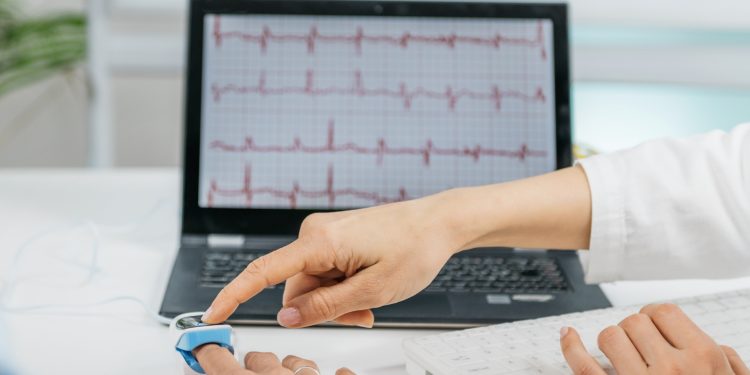search the site
Biofeedback and neurofeedback as tools for seafarers’ stress management

Managing stress in the high-stakes environment of seafaring is crucial for the safety and efficiency of maritime operations and for the mental well-being of the crew, argues, Dr. Michela Terrei, Psychologist, I.M.A. ASSESSMENT AND TRAINING CENTER, INC.
According to the WHO, stress can be defined as a state of worry or mental tension caused by a difficult situation. Stress is an instinctual human response that prompts us to address challenges and threats in our lives. Everyone experiences stress to some degree. The way we respond to stress, however, makes a big difference to our overall well-being”.
Advances in psychological and neuroscientific methods, particularly biofeedback and neurofeedback, could represent additional tools for enhancing stress management techniques. These methods offer real-time insights into physiological responses to emotions and mental functions, allowing individuals to gain awareness and control of their reactions to stressful and challenging situations.
Biofeedback and neurofeedback are techniques that measure bodily functions, providing real-time feedback to help individuals learn to understand, recognize and control these processes consciously. Biofeedback involves monitoring physiological markers such as heart rate, muscle tension, and skin conductance, which are often influenced by stress. Neurofeedback focuses on brain activity, offering feedback based on brain wave patterns.
These techniques are grounded in the concept of self-regulation, providing seafarers with the tools to understand and control their physiological responses to stress. The final aim could be to manage stress and to enhance overall cognitive function and emotional resilience.
In the context of maritime operations, where external stressors are constant and often unpredictable, these tools can be particularly valuable. They empower crew members through a deeper understanding of themselves.
The maritime environment is fraught with unique stressors that significantly impact crew members. These stressors range from prolonged periods away from family and the monotony of sea travel to the immediate dangers of harsh weather and mechanical failures. The psychological strain can lead to mental fatigue with decreased alertness, impaired decision-making, and increased risk of accidents.
The practical application of these technologies during cadetship programs or in the training period has been pioneered in a few case studies. For instance, a pilot study in the UiT (The Arctic University of Norway) involving 23 nautical science students was developed in order to investigate the relationship between the complexity of maritime navigation training scenarios and the stress levels of participants.
This innovative approach highlights one of the benefits of biofeedback evaluation training systems where it gives us a more objective measure of stress levels because of the measured physiological response, allowing for a more precise assessment of stress levels and enabling instructors to adapt the training program to better suit the needs of each trainee.
In IMA academy, we started a pilot study on the use of biofeedback during simulator-based exercise and Virtual Reality based challenging scenarios. The devices used for the measurements are comfortable and reliable, well accepted by the individual, and they can be comfortably worn during simulator exercises. The real time feedback offers a unique opportunity for instructors to assess the stress resilience and the capability of each crew to recover. This data can be used to offer personalized feedback and to tailor training programs that address the specific needs of each individual, promoting a more customized learning experience.
Biofeedback helps in identifying patterns in physiological responses that could signify ineffective coping mechanisms. With this information, trainers can help seafarers develop more effective coping strategies tailored to their individual responses. This could include training in mindfulness, cognitive-behavioral techniques, or specific relaxation protocols that have been shown to counteract their less effective stress responses.
Biofeedback and neurofeedback offer several key advantages that can directly benefit seafarers.
- Firstly, enhanced stress management: these technologies enable individuals to see real-time visualizations of their stress levels, teaching them to recognize and control their physiological responses. This direct feedback loop helps seafarers develop effective coping strategies that can be used in both immediate and prolonged stressful situations.
- Secondly, improved performance: by managing stress effectively, seafarers can maintain high levels of cognitive function and decision-making capabilities in critical situations. Regular use of biofeedback and neurofeedback can lead to better focus, quicker reaction times, and fewer errors, directly impacting the safety and efficiency of maritime operations.
- Lastly, increased self-awareness: these tools help individuals understand their body’s signals and how they correlate with their emotional and mental states. This heightened awareness is invaluable in a high-stress environment, enabling seafarers to make informed decisions about managing their reactions in both their professional and personal lives.
The cognitive benefits of biofeedback and neurofeedback are particularly significant in environments that demand high levels of alertness and mental resilience. For seafarers, who must often operate in isolating and dynamic conditions, these benefits include improved attention, enhanced problem-solving skills, and stronger emotional regulation.
Learning to control one’s physiological responses through these techniques not only reduces the cognitive load of stress but also enhances overall mental clarity. The individual becomes better equipped to handle complex navigational challenges, emergency situations, and interpersonal conflicts within the crew. Furthermore, the continuous practice of these techniques cultivates a mindset that prioritizes self-care and mental health, which are crucial for long-term career sustainability and personal well-being.
Technology is an integral part of our lives. Incorporating biofeedback and neurofeedback technologies into the maritime industry represents a forward-thinking approach to managing stress and enhancing crew well-being. These tools provide direct benefits in terms of stress management and performance enhancement and foster a deeper self-awareness among the crew.
As the maritime industry continues to face unique challenges, embracing such innovative solutions will be crucial in promoting a healthier, more resilient workforce. By investing in the mental and emotional health of crew members, maritime operators can ensure safer and more efficient voyages, ultimately benefiting the entire industry.
source : safety4sea


















